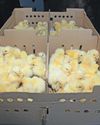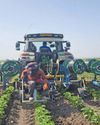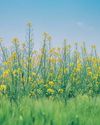
Hot summers, cold winters, and well-drained soil: these are the basic requirements to start farming pomegranates. “It’s not a fussy, high maintenance crop, although it does still need a bit of care. But someone who has never farmed before, for example, will likely succeed with pomegranates,” says Louis Swanepoel.
Swanepoel and his partner, Kobus van Zyl, who own Ubali Pomegranate Farm in Cullinan, Gauteng, are focused on producing pomegranate trees for farmers. The 3 000 trees in their mother block, used to produce cuttings, provide them with ample fruit and sound knowledge of what it takes to produce this crop.
When they moved onto the smallholding 13 years ago, they planted a test block of 100 trees to see if pomegranates were suited to the area. “It is a Mediterranean crop, and while Gauteng’s climate can’t be classified as such, the trees did really well, so we started expanding,” explains Swanepoel.
Today, the nursery has capacity for 45 000 trees, which are supplied to farmers from Gauteng to the Western Cape. A key consideration for planting pomegranates is cold units. “The temperature needs to drop to at least -5°C in winter to ensure the trees go dormant. If it doesn’t, the trees are unlikely to bear fruit,” he adds.
Swanepoel also cautions against tropical and subtropical climates, noting that areas suitable for apricot and peach production will likely be suitable for pomegranates, too.
GET THE BASICS RIGHT
Pomegranates prefer sandy soil and can cope in poor soils but not clay. Swanepoel relates advice he received to determine if the soil is suited to pomegranates: “Dig a 1m³ hole and fill it with water. If there is still water in that hole after 48 hours, then the land is not suited to pomegranates.”
This story is from the August 23, 2024 edition of Farmer's Weekly.
Start your 7-day Magzter GOLD free trial to access thousands of curated premium stories, and 9,000+ magazines and newspapers.
Already a subscriber ? Sign In
This story is from the August 23, 2024 edition of Farmer's Weekly.
Start your 7-day Magzter GOLD free trial to access thousands of curated premium stories, and 9,000+ magazines and newspapers.
Already a subscriber? Sign In

Learners prompted to consider agri careers
In late January, Eastern Cape MEC for Rural Development and Agrarian Reform Nonceba Kontsiwe launched a back-to-school campaign in the town of eMaxesibeni, part of the Alfred Nzo District Municipality.

Conservation collaboration transforms lives and catalyses meaningful change
The collaboration between the African Conservation Trust (ACT) and the Social Employment Fund (SEF) is not only transforming lives and landscapes, but is a catalyst for meaningful change.

Revised Network Statement shows clear intent to move agricultural products back to rail
POLICY PERSPECTIVE by Theo Boshoff

Protecting the world's forests
This excerpt of a report by the Food and Agriculture Organization of the United Nations provides projections on fuelwood and roundwood production, and offers some pragmatic solutions that are needed to protect the world’s forests, which are essential for the livelihoods of many people.

Cederberg frog discovery of 'extreme importance'
The identification of a new frog species, the Cederberg dainty frog (Cacosternum cederbergense), in South Africa in late 2024 is of the utmost importance for the preservation of biodiversity. This was according to herpetologist Tyrone Ping.

Farmers warned to look out for fraudsters and deals that seem too good to be true
Fraud happens everywhere, even in the agriculture sector, where many negotiations rely on relationships and goodwill. Glenneis Kriel reports on the situation and how to safeguard yourself against such crimes.

Addressing water scarcity and other agri issues through innovative irrigation
Smart irrigation helps address the challenges of water scarcity and unpredictable weather, and promotes operational efficiency, writes Eran Ossmy, president of Rivulis’ Micro Irrigation Division.

Canadian farmers expected to face trade challenges in 2025
Possible tariffs on Canadian agricultural exports have been a source of anxiety for the country since the new US government under President Donald Trump came into power in late January.

Vaccines are one of the most effective ways to combat diseases in animals
When it comes to protecting your animals’ health, vaccination stands out as one of the most crucial and effective preventive measures available, writes Boehringer Ingelheim’s Dr Michelle Enslin.

New year starts with a volatile veg market
This analysis by Absa AgriBusiness outlines market trends, highlighting the factors shaping each vegetable category's performance.